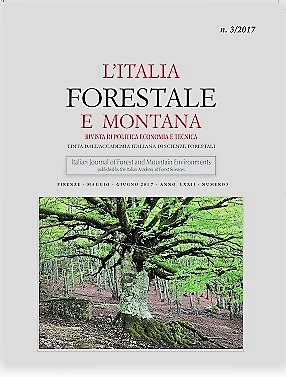Published 2017-10-10
Keywords
- Forestry Schools,
- scientific paradigm,
- complex adaptive systems,
- systemic silviculture,
- culture of the forest
Copyright (c) 2017 Italian Journal of Forest and Mountain Environments

This work is licensed under a Creative Commons Attribution-NonCommercial 4.0 International License.
Abstract
A brief historical overview describes the birth of Forestry schools and how this was triggered by the concern for conserving forests, the need to stop forest destruction and the opportunity to regulate forest utilization so as to attain sustained yield. This entailed the development of silviculture, forest regulation and forest economics. The limits of the theory of forest multifunctionality are examined. The change from looking at the forest only as trees, to considering it a complex biological system brought to the definition of Systemic silviculture, or Silvosystemics, which determines a new way of managing the forest. This new forest vision recognizes the forest as a cultural and environmental asset. The technical, scientific, episthemological, aesthetic and ethical consequences of this change of paradigm are discussed. The practical implementation of systemic silviculture requires a new management system based on overcoming the linear concept in silviculture and the theory of the normal forest. Systemic management is based on the creativity of the forester and on the freedom to interpret the originality and harmony of each forest. The conclusion is that the future must be based on a new culture of the forest, which does not mean replacing the culture of controlling nature with a culture of submission to nature, but with a culture of respect for nature.

